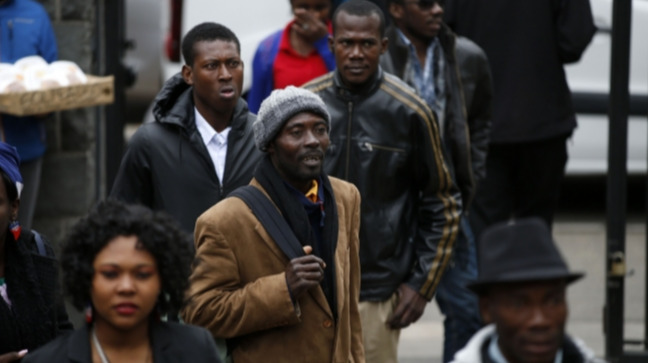
With the second Piñera government, a new and very restrictive immigration law came into force
By Guillermo Alvarado
With the second term of the Piñera government, a new and very restrictive immigration law came into force, which placed insurmountable obstacles to the regularization process.
I said in a previous article that one of the waves of Haitian migrants that are saturating the shelters of the Mexican capital, most of them managed by humanitarian organizations, arrive after a long journey that starts almost at the southern tip of our continent.
These are people who for several years were settled in various parts of Chile, where they arrived after the devastating earthquake of 2010 that tore away their meager belongings and destroyed their homes, leaving them without shelter.
It was then the first government of Sebastián Piñera, who in March 2014 handed over to Michelle Bachelet.
In those years there was a relative economic stability in the South American nation, coupled with fairly flexible immigration laws, which worked as an attraction for many Haitians, and from other countries in the area, to arrive there in search of opportunities.
The numbers began to accelerate because if between 2013 and 2015 an estimated 40 thousand people arrived from the Caribbean nation, a year later there were 48 thousand 700 and in 2017 the number of Haitian migrants rose to 104 thousand 700.
In 2018, with the second government of Piñera, a new very restrictive migratory law came into force, which put insurmountable obstacles to the regularization process by requesting, for example, documents that could only be obtained in Haiti, something impossible for those who had left Haiti years ago.
Without legal residency it is not feasible to find a job or housing, but also began a campaign of hatred and harassment against migrants that the executive somehow encouraged, or at least did not prevent.
During 2019 many succumbed to the illusion that something would change in the United States if Donald Trump lost the election, and preparations began for an exodus that accelerated after Joe Biden's victory.
The emergence of the new coronavirus pandemic in 2020 did not contain this great movement of human beings, which consisted of crossing almost the entire continent in precarious transport and on foot in mountainous areas, a journey of epic proportions that left more than a few victims along the way.
Other groups leaving Brazil joined these caravans, driven by fear, poverty and illusion, battered by the indifference of the locals, the obstacles of the authorities and the greed of the traffickers.
The first arrivals found the gates of paradise locked, those who follow them insist because there is no turning back on this journey, which often leads to nothing.

